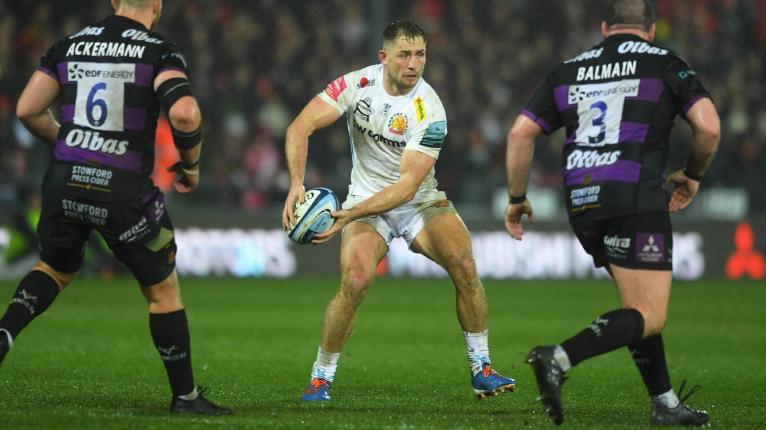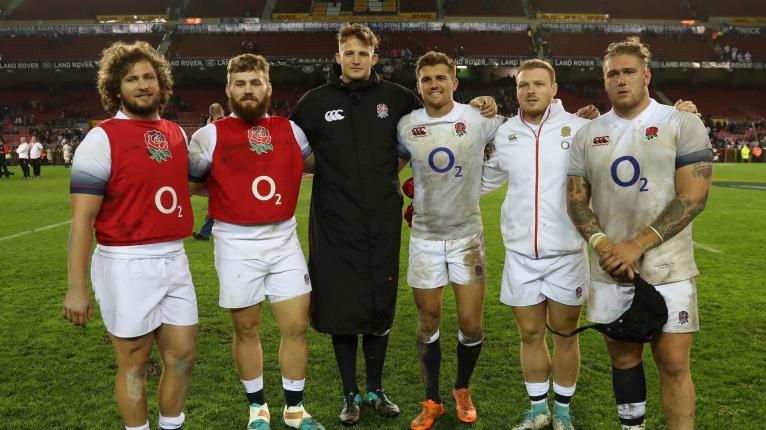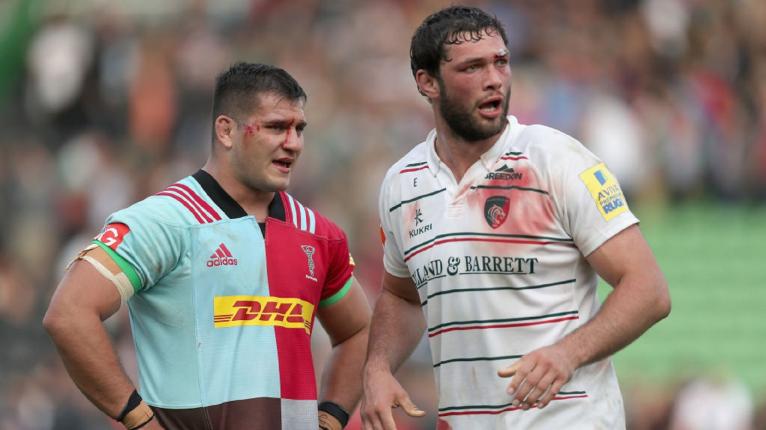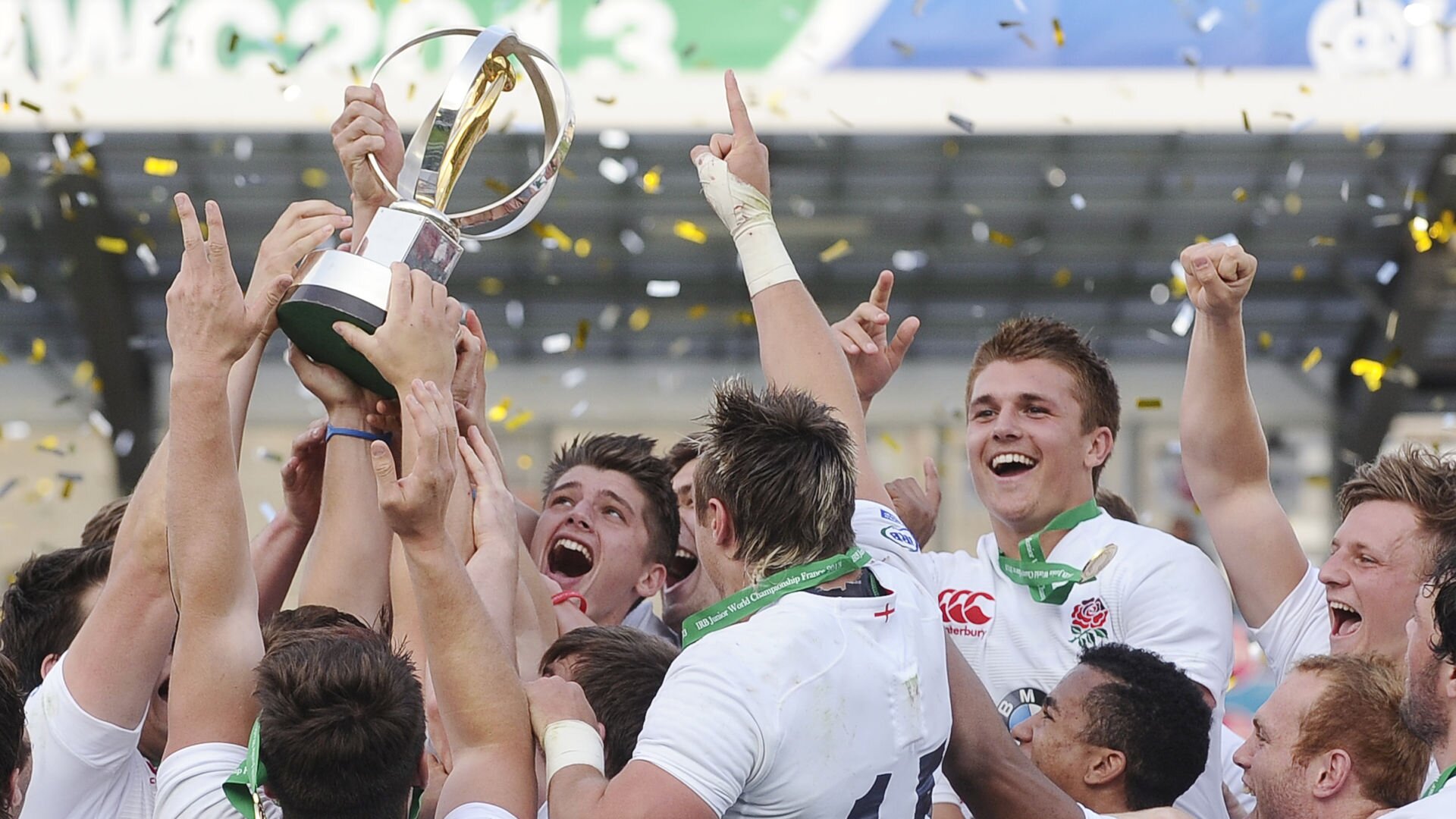Where are they now: The 2013 England U20s world champions

England won the first of their three World Rugby U20s Championships last decade in 2013, defeating Wales 23-15 in the final in Vannes.
As we are currently seeing with France, the success of the under-20 side is often the forerunner to promising times for their senior counterparts. France have won the previous two world championships, and their victorious players are filtering into Fabien Galthie’s side now, signalling a resurgence for Les Bleus.
WATCH: Jim Hamilton is joined by Italy International and Benetton player Ian Mckinley to discuss the effects of COVID19
With that in mind, the victorious 2013 group has a number of household names in Test rugby today, but equally, those that are not. So this is where the 2013 final squad are now:
15 Jack Nowell
The Exeter Chiefs’ Jack Nowell made his debut for England under Stuart Lancaster less than a year after this victory, and has been part of the national set up ever since.
Although primarily a winger these days, the slippery runner is spoken of very highly by current England head coach Eddie Jones, and has gone on to earn 34 caps, and two for the British and Irish Lions in 2017.
14 Anthony Watson
England’s winger Anthony Watson moved to Bath from London Irish immediately after the victory, which was a positive step in his career. Just under 18 months later, he was making his debut against the All Blacks for the senior team.
Another Lion, Watson has earned 46 caps to date, and while he has had extensive periods on the sidelines with injuries, he is a guaranteed starter under Jones when fit, and started in the Rugby World Cup final in 2019.
13 Harry Sloan
The former Harlequins centre Harry Sloan added another world championship to his name a year later in New Zealand, but after stints with both Ealing Trailfinders and London Scottish in the Championship, he made the permanent move to the former in 2018.
12 Sam Hill
Exeter’s robust centre Sam Hill was first called into Jones’ England squad in 2016, but failed to earn a cap. Since then he has perhaps not kicked on in the same way many of his 2013 teammates have, but a move to Sale Sharks at the end of the season may reignite his career and potentially improve his Test credentials.

11 Ben Howard
The former Worcester Warriors fullback Ben Howard went on to play over 60 games for the West Midlands club, as well as representing England Sevens, before a move to National One outfit Old Elthamians in 2018.
10 Henry Slade
Although rarely seen in a No.10 shirt these days, Exeter’s Henry Slade is another player that has gone on to have a lot of success since 2013.
Now largely operating at outside centre, his silky distribution and kicking game have been exploited by Jones with England, and he has created a highly successful midfield partnership with Manu Tuilagi. The centre came off the bench for England in the RWC final loss to South Africa in 2019.
9 Alex Day
The former Northampton Saints scrum half Alex Day made the move from the Premiership to the Championship in 2015 in search of game time, joining the Cornish Pirates. A highly successful four years in the west earned him a move to English and European champions Saracens last summer.
1 Alec Hepburn
The dynamic Exeter loosehead Alec Hepburn has gone on to earn six caps for England, the last of which was in 2018, but is ever present in Rob Baxter’s side and is integral to the Chiefs’ supremacy in the tight. Hepburn will still be on Jones’ radar for more caps in the future.

2 Luke Cowan-Dickie
Yet another member of the Exeter contingent in the 2013 team that has gone on to have success on the Test stage. Luke Cowan-Dickie made his debut in a 2015 RWC warm-up match, but failed to make Lancaster’s squad.
Following the retirement of Dylan Hartley, the 24-cap hooker is now England’s second-choice behind Jamie George, also playing in the RWC final, but is in the form of his life currently and a nominee for European player of the year.
The former Newcastle Falcons tighthead Scott Wilson made 80 appearances for the club he joined at the age of 15 before he was forced to retire at the age of 24 in 2018 due to a neck injury. The injury came in the Premiership semi-final loss to Exeter, and his career ended a few months later on medical advice.
Second row Tom Price moved to Sandy Park last summer, joining Exeter on a two-year deal after four years in Wales with the Scarlets. Although his first season in Devon has been hampered by injury, this could be a promising spell.
5 Dom Barrow
After moving to Leicester Tigers from Newcastle in 2015, Dom Barrow soon became a regular in the engine room at Welford Road, and was in contention to play for England in 2017.
After stints with La Rochelle and Northampton, Barrow retired from rugby last month and is now managing director of green technology company Pure-EV.

6 Ross Moriarty
Now an accomplished international and 2017 Lion, Ross Moriary crossed the Severn and now represents Wales. The son of former Wales international Paul Moriarty, Ross made his debut in 2015 under Warren Gatland, and is now a mainstay in the Welsh squad, covering both blindside flanker and No.8.
7 Matt Hankin
Another player that has unfortunately been forced to retire, the former Saracens loose forward Matt Hankin suffered from a string of concussions and hung up his boots in 2018 at the age of 25. Despite being a rising star at Saracens, he was ultimately never able to overcome his long battle with head injuries.
8 Jack Clifford
The England captain in 2013, Jack Clifford was one of the main players tipped to go on to great things. He was first capped in Jones’ new look 2016 team, and has since earned 10 caps, two of which at No.8; the most recent being in February 2017.
Unfortunately for the swift Harlequins back row, he has been blighted by injuries in recent seasons, but is one player that Jones will still have a keen eye on.
Bench:
16 Scott Spurling
17 Danny Hobbs-Awoyemi
18 Tom Smallbone
19 Harry Wells
20 Dave Sisi
21 Callum Braley
22 Ollie Devoto
23 Henry Purdy
The bench contained a number of players who are recognisable names in Premiership rugby or in the international arena. Both Dave Sisi and Callum Braley have gone on to represent Italy, with the former playing for Zebre in the Pro14, and the latter set to join Benetton next season from Gloucester.
Ollie Devoto has since earned two caps for England, his first in 2016 and the second this year in the Six Nations against France following his consistent good form with Exeter this season.
























